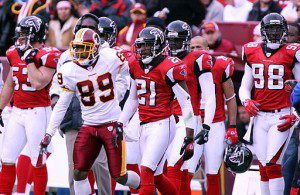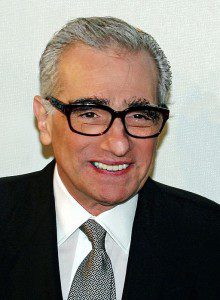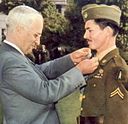Last updated on: January 10, 2017 at 8:44 pm
By
Gene Veith
0 Comments
 Frederich Buechner is a novelist and writer that I really appreciate, but his definition of vocation is causing confusion. He said that your vocation is “the place where your deep gladness meets the world’s deep need.” Great words with some good applications, but to say this describes vocation contributes to the notion that vocation is something special, tied to self-fulfillment, and something better than ordinary “jobs.”
Frederich Buechner is a novelist and writer that I really appreciate, but his definition of vocation is causing confusion. He said that your vocation is “the place where your deep gladness meets the world’s deep need.” Great words with some good applications, but to say this describes vocation contributes to the notion that vocation is something special, tied to self-fulfillment, and something better than ordinary “jobs.”
So now Jo Swinney, thinking of that definition, says, writing for Christian Today (a British site not to be confused with Christianity Today), that “the idea of vocation can be deeply problematic.”
Anyone, of any tradition, who writes about vocation needs to start with the great theologian of vocation: Martin Luther. According to him, vocation is God’s calling to love and serve our neighbors in the tasks and relationships that He gives us. Also, our “jobs” are only one facet of our vocations and probably not the most important: we also have callings in the family, the church, and the society. And our vocations are not just where we find our fulfillment but also where we bear our crosses.
Read the criticisms of vocation after the jump, and then read my further thoughts on the matter. (more…)
 The Superbowl is this weekend, time for the obligatory polls about whether or not God gets involved in the outcome of sporting events. One-quarter of Americans believe that he does. About a half believe that God rewards faithful athletes with health and success.
The Superbowl is this weekend, time for the obligatory polls about whether or not God gets involved in the outcome of sporting events. One-quarter of Americans believe that he does. About a half believe that God rewards faithful athletes with health and success.











Vocation as the foundation of culture
I learned some things at the Two Kingdoms conference I spoke at, sponsored by Jordan Cooper at Just and Sinner. Jordan commented that our vocations–in the family, the economy, the church, and the state–are no less than the foundations of culture.
He studied the first chapters of Genesis and concluded that the so-called “cultural mandate” (by which human beings are given the authority and the ability to rule the earth), should more properly be called the “vocational mandate.”
UPDATE: You can hear Jordan’s complete presentation here.
(more…)